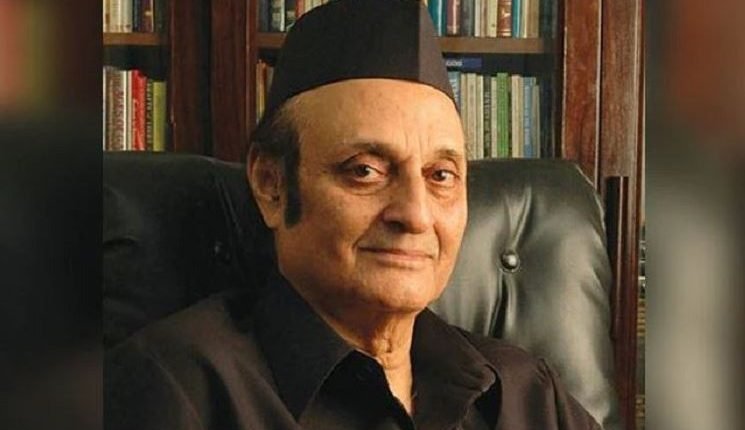NEW DELHI, Jan 4: Karan Singh, a seasoned Congress leader and a towering figure in Indian politics, has unequivocally called for the immediate restoration of statehood to Jammu and Kashmir. Expressing deep dissatisfaction with the current Union Territory status of the region, Singh termed the arrangement an “unacceptable” diminution of Jammu and Kashmir’s stature as the “crown of India.” In a recent interview with PTI, Singh reflected on the political, constitutional, and cultural implications of the changes following the abrogation of Article 370 in 2019, emphasizing the urgency of reversing the Union Territory status and reinstating full statehood.
Singh, who served as Sadr-i-Riyasat of the erstwhile state and a three-time Rajya Sabha MP, highlighted the stark contrast between the pre-and post-abrogation political landscape. Before Article 370 was revoked, discussions primarily centered on the degree of autonomy to be accorded to Jammu and Kashmir. The revocation not only nullified the special status of the region but also fundamentally altered the political discourse and administrative framework. Singh described this transition as a regressive step, relegating Jammu and Kashmir behind other states like Himachal Pradesh and Haryana in governance efficiency.
He reiterated his firm stance on statehood restoration, asserting that the current status undermines the identity and dignity of the region. Drawing parallels with domicile laws in Himachal Pradesh that restrict land ownership to locals, Singh advocated for similar safeguards to protect the interests of Jammu and Kashmir’s residents. These measures, he argued, are essential to maintaining the region’s unique cultural and demographic character while addressing concerns about land and resource ownership.
Singh adopted a nuanced perspective on the abrogation of Article 370, acknowledging certain positive outcomes. He praised the removal of discriminatory laws that stripped property rights from women who married outsiders and the extension of voting rights to individuals who had migrated from Pakistan. However, he stressed that these benefits do not justify the broader implications of the constitutional change, particularly the demotion of Jammu and Kashmir from statehood to Union Territory status.
Reflecting on his earlier proposal to trifurcate the state into Jammu, Kashmir, and Ladakh, Singh noted that the political dynamics have evolved significantly since then. While his suggestion was dismissed at the time, the subsequent bifurcation of Jammu and Kashmir and Ladakh into separate Union Territories has brought new complexities. He emphasized that the way forward lies in reinstating statehood and implementing domiciliary laws while fostering equitable development between the Jammu and Kashmir regions.
Singh also underscored the importance of harmonious relations between the central government and the government of Jammu and Kashmir. He called for a peaceful and cooperative approach to governance that prioritizes the aspirations and welfare of the region’s people. The restoration of statehood, he argued, is not merely a political demand but a necessity for restoring the region’s dignity and ensuring effective administration.
In the broader context of Jammu and Kashmir’s history, Singh’s reflections carry significant weight. As a member of the erstwhile royal family and a participant in the region’s transition from monarchy to democracy, his insights provide a unique perspective on the challenges and opportunities that lie ahead. Singh recounted his complex relationship with Sheikh Mohammed Abdullah, the first Chief Minister of Jammu and Kashmir, acknowledging the historical tensions between the monarchy and the emerging democratic forces. Despite these differences, Singh recognized Sheikh Abdullah’s contributions to the region’s political landscape and his enduring legacy.
Singh also expressed his admiration for the Abdullah family’s subsequent generations, particularly Farooq Abdullah and Omar Abdullah. He credited Farooq Abdullah with bringing him back into active politics after a 12-year hiatus and praised Omar Abdullah for his balanced approach and potential for a successful political career. These relationships, Singh suggested, illustrate the importance of continuity and collaboration in Jammu and Kashmir’s political evolution.
Turning to the national political landscape, Singh offered his observations on Congress leaders Rahul Gandhi and Priyanka Gandhi Vadra. He described Rahul Gandhi as a “nice young man” who is gradually improving and learning on the job, despite facing significant challenges. Singh’s praise for Priyanka Gandhi Vadra was more effusive, highlighting her intelligence, charisma, and potential to make substantial contributions to Indian politics.
Singh’s reflections extended to his experiences with India’s political luminaries, including Jawaharlal Nehru and Indira Gandhi. He described Nehru as a mentor and recounted his time in Indira Gandhi’s Cabinet, witnessing pivotal moments such as the liberation of Bangladesh and the imposition of the Emergency. Singh also lamented the assassination of Rajiv Gandhi, which he viewed as a tragic loss for India’s progress into the 21st century.
Despite his illustrious career, Singh expressed no regrets about missed opportunities, such as his candidacy for the presidency being thwarted by political opposition. He remains content with his contributions to Indian politics and culture, which include significant roles in the Indian Council for Cultural Relations and UNESCO.
His advocacy for a balanced and inclusive approach to governance reflects a deep commitment to the region’s welfare and its rightful place in the Indian Union. Through his words and actions, Singh reinforces the importance of preserving Jammu and Kashmir’s unique identity while addressing the aspirations of its people in a rapidly changing political landscape.




